US Sanctions Company Over Iran’s Internet Censorship
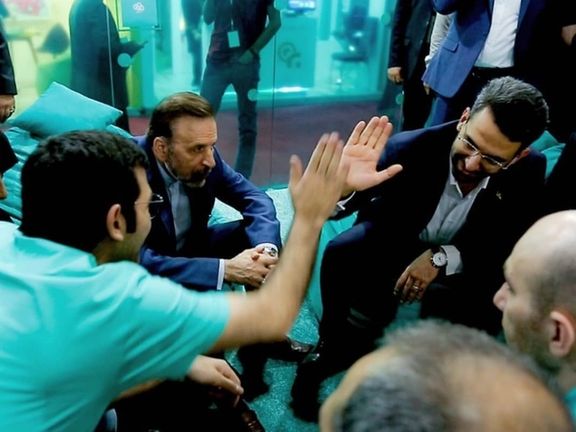
The US has sanctioned Iran-based tech firm Arvan Cloud, its co-founders, and an affiliate UAE-based company over helping the regime censor Internet in Iran.

The US has sanctioned Iran-based tech firm Arvan Cloud, its co-founders, and an affiliate UAE-based company over helping the regime censor Internet in Iran.
In a statement issued on Friday, the US Department of the Treasury said Arvan Cloud has a close relationship with Iran’s intelligence services, including the Ministry of Intelligence and Security, and the company’s executives have extensive ties to senior government officials.
The EU had sanctioned the company in November.
Reiterating that unrestricted access to information is fundamental right, Under Secretary of the Treasury for Terrorism and Financial Intelligence Brian E. Nelson said, “The US is committed to holding accountable those who seek to undermine freedom of expression and suppress dissent, and to call out regimes who deny their citizens this right.”
Navyan Abr Arvan Private Limited Company, known as Arvan Cloud, and two of its founders Pouya Pirhosseinloo and Farhad Fatemi and the Dubai-based ArvanCloud Global Technologies worked with Iran’s Information and Communications Technology Ministry to develop a countrywide intranet that is being used to disconnect the Iranian people from the global Internet.
Mehdi Bahadori and Alireza Hashemi are the other co-founders and Keivan JameBozorg is the company's chairman of the board. They were not included in the US list of sanctions.
The Iranian government has regularly used Internet restrictions and the throttling of Internet speeds to suppress dissent, surveil and punish Iranians for exercising their freedom of expression and assembly both online and offline, and limit the dissemination to the international community of credible information about egregious human rights violations.

Amid campaigning against Iran's appointment as chair of the UN Human Rights Council’s Social Forum, the Islamic Republic has gained another UN leadership position.
The regime was appointed Thursday as one of the vice-presidents of the UN General Assembly which will begin next September, drawing reactions from several members and dozens of activists. The body also appointed Iran’s envoy Heidar-Ali Balouji as the rapporteur of the Disarmament and Non-Proliferation Committee of the General Assembly and a member of the board of this committee.
The US mission in UN dissociated itself from the election and expressed its opposition to Iran's leadership throughout the UN system, saying: “Iran cannot act as an honest broker in its role as a Vice President of the General Assembly, because it has shown, time and time again, that it does not seek to enhance global peace and security, but rather works against it.”

After the election of the vice presidents of the 78th Session of the General Assembly, US Ambassador to the body, Chris Lu, said “Iran’s record, unfortunately, speaks for itself. It defies UN Security Council arms embargoes, violates the human rights of its own citizens, and exports violence and weapons, fostering insecurity and inciting violence throughout the Middle East and across the globe.”
Another US envoy, Robert Wood, referred to Iran’s persistent violations of UN Security Council resolution 2231, including pertaining to its ballistic missile program, its ongoing efforts to undermine international security, and its failure to fully cooperate with the International Atomic Energy Agency (IAEA), underlining that “a representative of Iran’s government is unfit to serve in a leadership position within this committee, even if such a position is largely ceremonial.”
Israel’s Foreign Ministry also called the decision “shameful,” saying: “In addition to murdering its own citizens, attacking innocents around the world and racing towards a nuclear weapon with the goal of wiping Israel off the map, Iran will now serve in a senior UN position.”
“This is the same country that calls for the destruction of another member state of the organization it represents,” it added, referring to the Islamic Republic's repeated call that Israel must be obliterated from the face of the Earth.
Noting that such an appointment “defies all logic and reason,” the ministry added that it is “an insult to the millions of Iranians protesting for their basic freedoms and to the justice, peace and global stability that the UN is supposed to stand for.”
The decision has caused outrage among Iranian people and activists, such as opposition figure Nazanin Boniadi, who called it “an absolute disgrace."
In May, the appointment of Iran's UN ambassador Ali Bahraini to the chair of the UN Human Rights Council 2023 Social Forum also sparked much anger and indignation. The forum to be held in Geneva on November 2 and 3 will focus on the contribution of science, technology, and innovation to the promotion of human rights including in the context of post-pandemic recovery.
After launching a petition to the UN Secretary General Antonio Guterres to cancel the appointment, UN Watch -- an independent human rights organization -- submitted a resolution to the UN to overturn the decision late in May.
Earlier in the week, a group of 26 Iranian rights groups expressed fury over the appointment, saying that according to the UN Special Rapporteur on human rights in Iran, the violence of the security forces of the Islamic Republic during the nationwide protests led to the death of hundreds, including dozens of children and women, while hundreds of other protesters were seriously injured, and thousands were arrested.
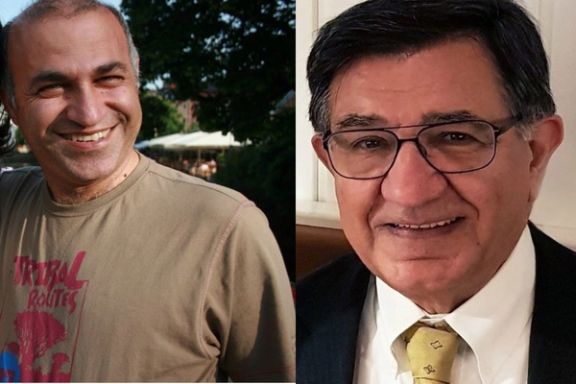
Iran has released two Austrian-Iranian hostages with reports suggesting the regime is about to free other prisoners with dual-nationality.
The Austrian Foreign Ministry said in a statement on Friday that Kamran Ghaderi and Massud Mossaheb have been freed after years of persistent diplomatic efforts. They are among unknown numbers of diplomatic hostages held by the regime.
Foreign Minister Alexander Schallenberg said: "I am very relieved that we can finally bring Kamran Ghaderi and Massud Mossaheb home after years of arduous imprisonment in Iran. They are already on their way to Austria, where their families are eagerly waiting for them.”
Ghaderi was arrested in January 2016 upon his arrival in Iran from Austria for a routine business trip. In October 2016, the Iranian judiciary sentenced him to 10 years in prison for espionage, along with the dual and foreign nationals Siamak Namazi, Baquer Namazi, and Nizar Zakka.
Mossaheb, a 73-year-old was also serving a 10-year prison term over vague national security offences. The regime arrested Mossaheb in late January of 2019 when he traveled to Iran with a delegation from MedAustron, an Austrian radiation therapy and research firm seeking to establish a center in Iran. He had worked in Iran for the International Atomic Energy Agency in 1977–78, prior to the Islamic Revolution
Reuters says a Danish national was also released but it did not release his/her name. In a statement, the Belgian government said that the Danish person was arrested in Iran in November 2022 in connection with women's rights demonstrations.
After medical tests, the three will be flown to Belgium's military airport in Melsbroek following a stop in Oman.
Schallenberg thanked his Belgian counterpart Hadja Lahbib as well as Omani Foreign Minister Sayyid Badr Albusaidi “for their valuable support," suggesting that the release was part of the recent Muscat-brokered prisoner exchange between Tehran and Brussels.
Asadollah Assadi, a former attaché at the Iranian embassy in Austria who was convicted of plotting to bomb a gathering of the exiled opposition group Mujahedin-e Khalq Organization (MEK) near Paris on June 30, 2018, was released and arrived in Tehran last Friday.
Belgian aid worker Olivier Vandecasteele, who was detained last year and sentenced to 40 years in prison and 74 lashes for alleged “spying and cooperation with the United States, money laundering and smuggling $500,000 out of Iran,” was also released as part of the deal.
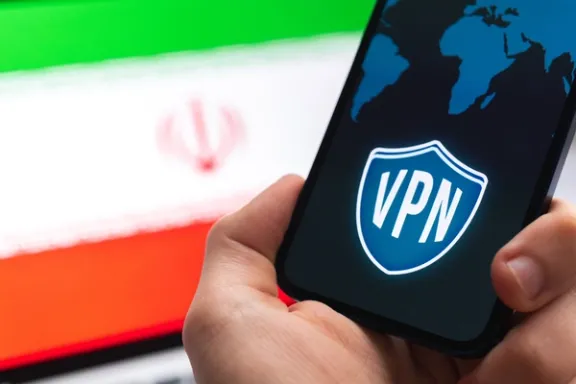
The US State Department says Washington has been providing VPNs to Iranians for access to the internet, especially since protests began in September 2022.
A State Department official briefed the media on Thursday saying that 30 million Iranians regularly use anti-censorship tools, including VPNs funded by the State Department.
Over the past years, the State Department has been funding a wide range of anti-censorship tools for the people who live in countries without free access to the internet, the US official explained.
Since the beginning of Iran’s September 2022 protests, the number of people using these tools inside Iran has risen exponentially and reached 30 million, roughly half of the adult population.
However, the official added that using these tools costs around 10 cents per user per month and currently the State Department is planning to increase the budget to continue providing this service.
Iran has been restricting and censoring the Internet since 2002, but using different techniques to deny access to users have surged during anti-regime protests.
The US Treasury Department expanded the range of internet services available to Iranians in the early days of the nationwide protests Iran following the death of 22-year-old Mahsa Amini in hijab police custody.
In October 2022, a bipartisan and bicameral group of US lawmakers urged Google, Amazon, Meta and other tech companies to facilitate access to online tools for Iranian protesters.
Internet restrictions and the use of anti-filtering tools have surged in Iran since protests began. Iranian hardliners push for restrictions to remain in place as long as street protests continue. Amid the heightened restrictions on Internet access, Iranians’ use of VPNs has risen over 3,000 percent in recent months.

A Norway-based human rights group says Iran executed 142 prisoners in May, hitting a dark record even for the Islamic Republic.
The Oslo-based Iran Human Rights Organization announced in its latest report on Thursday that the figure is the highest monthly executions since 2015, averaging five people hanged each day across the country during May.
According to the report, the regime has executed at least 307 people in the first five months of 2023, indicating a 76-percent year on year rise.
In addition to the first public execution of the year, 78 people were executed for drug-related charges, about 30 of whom were from the Baluch minority, perhaps the most persecuted community in Iran.
According to the data collected by the IHR, 59 percent – or 180 people -- of the 307 executions so far in 2023 were hanged over drug-related charges.
“As well as increasing drug-related executions, the Islamic Republic has also expanded the scope of charges it uses to carry out the death penalty by executing two people for blasphemy charges and one for adultery,” added the report.
The group reiterated warnings about the escalation of executions, calling on the international community “to stop the Islamic Republic’s killing machine with a strong reaction and practical punitive steps.”
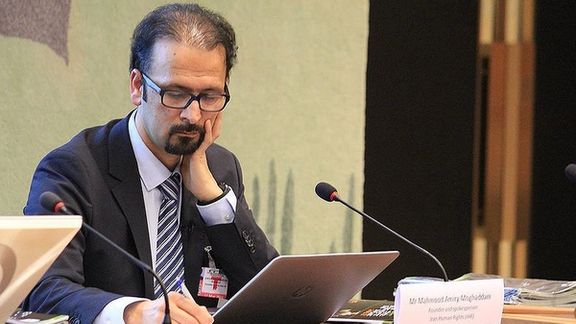
IHR Director Mahmood Amiry-Moghaddam told Iran International, “The purpose of the Islamic Republic’s intensification of arbitrary executions is to spread fear in society to intimidate people against holding further protests, thus prolonging its rule.”
He added that “if the international community doesn’t show a stronger reaction to the current wave of executions, hundreds more will fall victim to their killing machine in the coming months.”
Amiry-Moghaddam noted that the figures announced by the group are likely much lower than the real number of executions due to the secretive nature of the regime.
He noted that the Islamic Republic is not executing people to fight crime but to guarantee its rule as the regime is facing the boldest challenge it has ever faced since its establishment. “We are talking about a regime struggling with one of its biggest crises ever; it cannot solve the problems therefore it has to intimidate people to prevent further protests, and execution is the biggest tool for intimidation” he said.
Parastou Fatemi, a human rights expert, also believes that the rise in executions is a tactic to push back protesters from streets to their homes, saying that whenever the regime faces street protests, it expedites the execution processes to instigate fear among people.
On Monday, Islamic Republic Judiciary Chief Gholamhossein Mohseni Ejei defended the hanging of protesters, saying "The [death] sentences of those [protesters] who were/are supposed to be executed for their crimes during the riots have either been or will be carried out without any consideration.”
The Islamic Republic has intensified its killing trend in recent weeks, fueling further protests across the country. At least 259 Iranians have been executed since January alone, according to the United Nations.
Amid a spike in executions since late April, on May 19, authorities arbitrarily executed three tortured protesters, Majid Kazemi, Saeed Yaghoubi and Saleh Mirhashemi who were unjustly convicted and sentenced to death in Isfahan (Esfahan).
The deaths brought to at least seven the number of protesters hanged since nationwide protests broke out in September 2022 following the death in custody of 22-year-old Mahsa Amini. The unrest posed the biggest internal challenge to the Islamic Republic since its establishment in 1979.
Earlier in March, Amnesty International said at least seven individuals in Iran face the death sentence in connection with protests, while dozens of others are at risk of being sentenced to death.
So far, around 750 civilians have been killed by security forces and at least 30,000 arrested. While many have been released, around 1,500 face criminal charges, and at least 80 detainees face the death sentence for the “moharebeh” and “corruption on earth”, Islamic-Arabic terms meaning to go against the will of God. Both carry the death penalty.
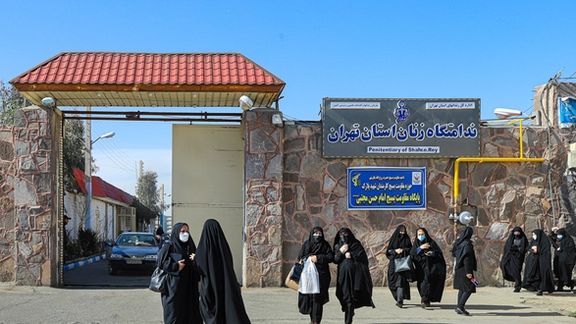
Iran’s judiciary says diplomats from 28 countries and representatives of international organizations have visited the women's ward at the notorious Gharchak (Qarchak) Prison south of Tehran.
Mizan, the Judiciary News Agency, reported Thursday that a delegation of 36 diplomats visited the penitentiary on Wednesday without citing the names of either the organizations or countries represented.
The visit comes about a month after the transfer of political prisoners from the prison and a few days after several detained female protesters revealed sexual assaults in Gharchak and Evin prisons.
"The women's penitentiary was chosen so that foreign guests can see the unique and diverse services and facilities for female inmates and get a correct understanding of the principles of Islamic prisons," claimed Kazem Gharibabadi, Secretary of Iran's High Council for Human Rights.
Pointing out that about 700 women are incarcerated in Gharchak prison, Gharibabadi claimed that women make up about 2.5% of Iran's prison population, which indicates "a very low rate of crime among Iranian women compared to the global rate."
In the past few days, several Iranian female political activists have spoken up about prison guards forcing them to strip naked, even in front of cameras, to humiliate them. Others have spoken of full sexual assault and rape.
Anti-compulsory hijab activist, Mozhgan Keshavarz, told Iran International that she was first strip-searched after her arrest in April 2019 and detention at Vozara Detention Center in Tehran where the 22-year-old Mahsa Amini died in custody on September 16 last year.
Since her revelations, other female activists including Zeynab Zaman, Nasibeh Shamsaei, Shaparak Shajarizadeh and actress Mahnaz Afshar who were subjected to the same humiliation have also come forward with their stories.